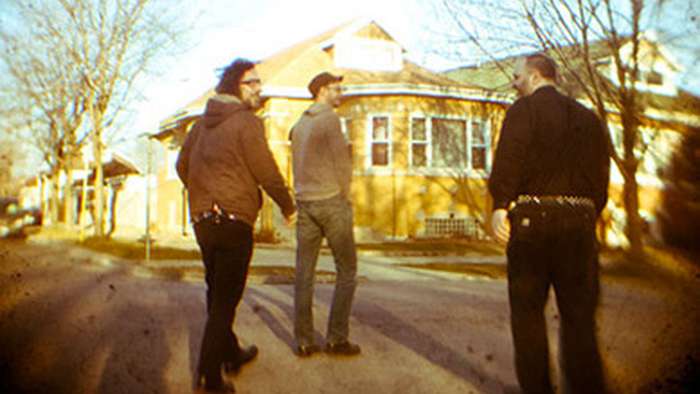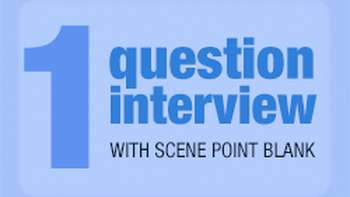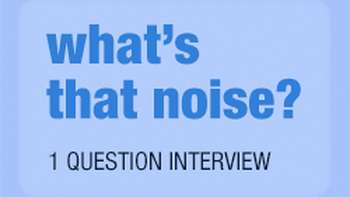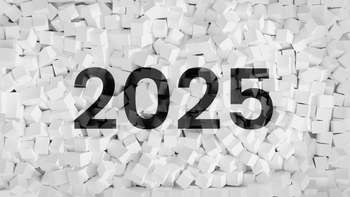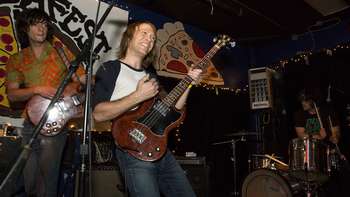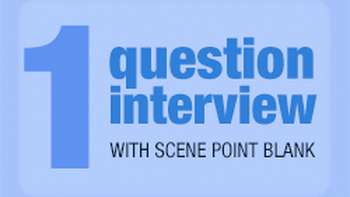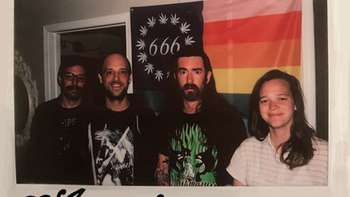There have been few bands traversing the musical landscape that create as challenging and thought provoking music as Locrian. Their releases have been exciting and moving in so many ways that it is useless to gush so much that suffice it to say, they have made me a tremendous fan. When I heard that a member of that collective had started another project, I had to check them out as well—and Kwaidan did not disappoint in the least.
A few months back, I had the chance to check in with Andre Foisy of both groups around the time that their most recent recordings were released to the public (Kwaidan dropped the awesome Make All The Hell Of Dark Metal Bright and Locrian released their Return To Annihilation).
Scene Point Blank: How did the three of you get together? Was it a bit of jamming amongst three compatriots or did you purposefully set out to make music together? What prompted you to start working with another group of people musically?
Andre Foisy: We started playing about two years ago. I had been doing some shows collaborating with Neil Jendon and we decided that it’d be cool to have a drummer, so we invited Mike to play with us. I had known both of those guys since they were active in the music scene and I really liked both of them as musicians and as people so it was really fun to get together with them.
I wanted to work with these guys because they are just amazing at what they do. Neil’s modular synth stuff is really creative and interesting, and Mike’s percussion is really unique.
Scene Point Blank: Why the name Kwaidan? Is it in homage to the Japanese film or more closely related to the idiomatic spelling of the Japanese word? Does it have implications for the group’s plans, motifs, or aesthetic in any way? What goals does Kwaidan have at this point?
Andre Foisy: After we played a few shows booked under our own names, we decided to name our project. We chose Kwaidan since we were fans of the film and we liked the name. There is a very soundtrack-ish feeling to our music.
Scene Point Blank: How long did the writing and recording take for the Kwaidan album? Was the process a relaxed affair or was there some stress involved?
Andre Foisy: I believe that the album was recorded over the span of about a year. We initially recorded side A of the album with the intention of those songs being on a split LP with High Aura’d. The label that was intending to release the album wasn’t able to do so. So, it was maybe six months or so later, the three of us got together and recorded side B with the intention of it being a full-length LP instead of a split LP. I rarely if ever, buy split 7”s or [split] LP’s so it seemed more interesting to us to release an LP.
Side A was entirely improvised. We came up with that in the studio. Side B had a few moments that were previously written by me, such as the piano part to “The Iceberg And Its Shadow,” and the fingerpicked guitar part of “The Sound Of This Bell”.
The entire recording and writing process was really relaxed and fun. We paid for the recording expenses ourselves because we were excited about the music.
Scene Point Blank: Would you say that you are happy (both collectively and personally) with how the album came out versus how you initially envisioned it? What is the biggest success with the album?
Andre Foisy: I’m super happy with how the album came out. I envisioned the album being more minimal than it turned out, but that’s ok. Also, I was actually surprised by how dark the music came out. It’s funny to hear Mike Weis really hitting his drums hard, since I didn’t expect him to play like that initially.
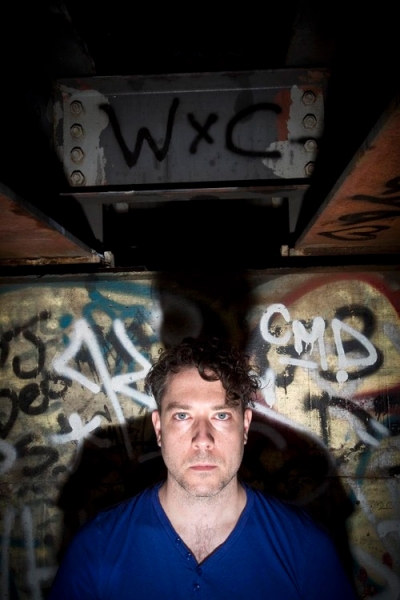
Scene Point Blank: What plans does Kwaidan have for the future? Will this group be playing more (I know your first release was a tape of a live show)? Do you have plans for future releases?
Andre Foisy: I’d love to do some more recording with these guys, but we haven’t accepted any obligations yet and we don’t have any shows planned at the moment. I imagine that we’ll play some more shows when the opportunity arises.
Scene Point Blank: How is your involvement in Kwaidan different from Locrian? How is it similar? Is there a different personal need that either group fulfills for you? How do you separate your writing for the two?
Andre Foisy: Kwaidan is an entirely different project. Locrian has moved in a more pre-written direction, while Kwaidan is primarily improvisational. Locrian has some strong metal-influenced aspects and I’m not interested in incorporating any metal elements in Kwaidan. I have focused on making my contributions to Kwaidan more minimal and subtle, at least for me. It’s a challenge for me to play less rather than more, and that’s what I’ve tried to do on this album, and I think that it has helped to really bring out the cool stuff that Neil and Mike do.
Scene Point Blank: Is there a different personal need that either group fulfills for you? How do you separate your writing for the two?
Andre Foisy: Each of these groups helps me to fulfill my desire to develop as a musician and they’ve both helped me to learn new ways to approach writing and creating music.
I typically don’t write things for either project in advance although I may at some point. On the Kwaidan album, I only wrote two parts in advance and the rest I came up with on the spot.
On the recent Locrian album, there were a few sections that I wrote in advance.
Scene Point Blank: How excited are you that Locrian has a new album out, Return To Annihilation? How long have the three of you been working on the record?
Andre Foisy: I’m really excited about our new album. It’s my favorite record that Locrian has done so far. We began working on the record last year. Probably in about January 2012, we began emailing a few ideas back and forth and in August we got together and played for a night and then went into the studio the next day.
"I have focused on making my contributions to Kwaidan more minimal and subtle. It’s a challenge for me to play less rather than more, and that’s what I’ve tried to do on this album"
Scene Point Blank: This was your first album for Relapse (The Clearing had originally been released on LP quite a while before the CD version on Relapse). What affect did that have on Locrian for the album?
Andre Foisy: Relapse has been very supportive for this album. It was nice to not be rushed in the studio, and to be able to record at our studio of preference.
Scene Point Blank: What is your favorite aspect of the album? For The Clearing you used the ARP guitar synthesizer. What new sounds like that did you bring out for Return To Annihilation?
Andre Foisy: I like that we really challenged ourselves on this by incorporating some new approaches for us. On this album more than any other, I feel like I concentrated on playing guitar to drive a song. I played the Moog Minitaur on a few tracks, but for the most part I really just approached my guitar parts in ways that I haven’t in the past. I really wanted to incorporate some finger-picking on the album and I did so on a few tracks. I typically don’t like guitar solos, but, on the last track on the album, I decided to do somewhat of a guitar solo since it felt like that’s what the song needed. If this was me a few years ago, I don’t think that I would have even considered adding a guitar solo.
Scene Point Blank: For your recent LPs, you have certain pieces of literature that have influenced or in some part informed the music that Locrian has created. Was this the case for Return To Annihilation? If so, what?
Andre Foisy: We have always been interested in concept albums and in utilizing different themes in different contexts. Some of our early works were influenced by the novel Dhalgren and the lyrics were a return and somewhat of a flushing out of that lyrical theme. Musically, there are plenty of themes that have appeared on our previous albums in new forms.
Scene Point Blank: What did Locrian ultimately achieve on Return To Annihilation that previously the group had not previously? Did you accomplish everything that you set out to with this specific album?
Andre Foisy: On this album we wanted to make concise statements. The last thing that we recorded as a trio was a 7” for Flingco Sound. Working on the 7” forced us to fit in all of our ideas for a song in about six minutes. So, although our songs are shorter on this album, it was more challenging in some ways for us to create, and we’re really happy with how the album came out.
I didn’t accomplish everything that I wanted to with this album, though, and that’s probably why I’ll continue to write music.
